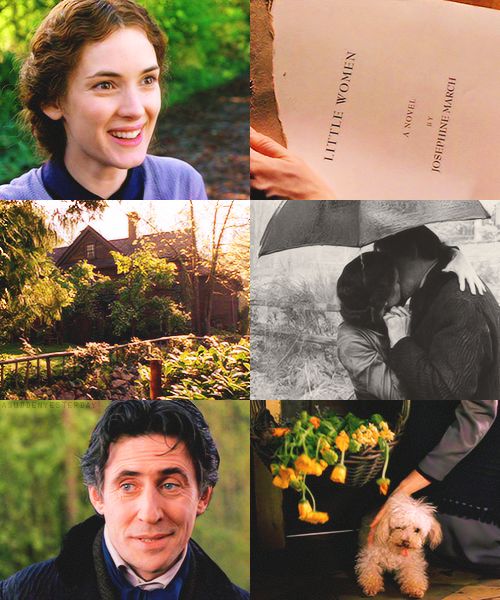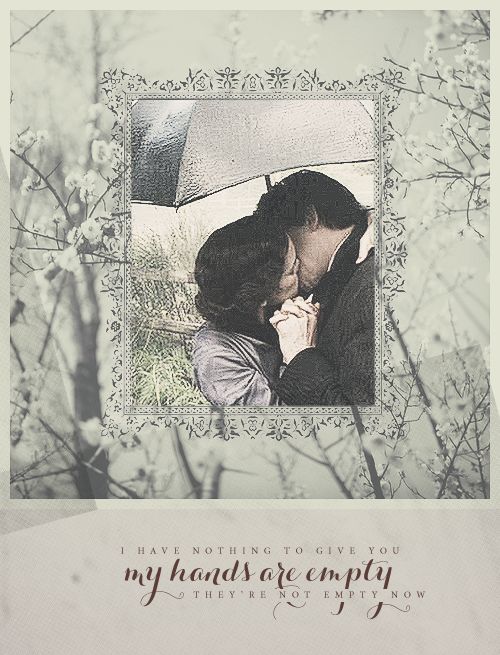Return to Mega Movie Pages Plus
role
Friedrich Bhaer

production
Directed by Gillian Armstrong, produced by Diane Di Novi, screenplay by Robin Swicord, based on the novel by Louisa May Alcott
Columbia Pictures, 1994
Cast: Winona Ryder, Gabriel Byrne, Trini Alvarado, Claire Danes, Susan Sarandon, Kirsten Dunst, Samantha Mathis, Christian Bale, Eric Stoltz, and John Neville
Nominated for three Academy Awards: best actress, best costume design, and best original score
Has a 90% Tomatometer rating at Rotten Tomatoes and 87/100 at Metacritic
taglines
The story that has lived in our hearts for generations now comes to the screen for the holidays
Save a place in your heart for the unforgettable story of these… LITTLE WOMEN
synopsis
Louisa May Alcott’s classic novel about a family of women in Civil War-era New England is again brought to the screen in this adaptation. The focus is on the March sisters, four young girls raised by their mother (Susan Sarandon) after their father leaves for battle as part of the Union Army. At the center is Jo March (Winona Ryder), an idiosyncratic would-be writer said to be based on Alcott herself, but the film also focuses on the stories of her sisters — the more conventional Meg (Trini Alvarado), the innocent Beth (Claire Danes), and the precocious Amy (Kirsten Dunst and Samantha Mathis, who represent Amy at different ages.) The film spans years, following the girls’ struggles with life’s challenges and illustrating how their family connection remains strong in the face of tragedies large and small. Australian director Gillian Armstrong emphasizes the story’s feminist elements, particularly in Jo’s journey to independence. ~ Judd Blaise, Rovi
trailer
poster

Scene: First Meeting
quotes
Amy: Have you heard from Jo? She has befriended a German professor.
Laurie: I envy her happiness. I envy his happiness. I envy John Brooke for marrying Meg. I hate Fred Vaughn. And if Beth had a lover, I would despise him too. Just as you have always known that you would never marry a pauper, I have always known that I belong to the March family.
Amy: I will not be loved for my family…—
Friedrich: You know, when first I saw you I thought “Ah, she is a writer.”
Jo: What made you think so?
[Friedrich indicates her inky fingers]—
Friedrich: You do not take wine?
Jo: Only medicinally.
Friedrich: Pretend you’ve got a cold.

Jo: I don’t have an opera dress.
Friedrich: Where we are sitting, we shall not be so… formal.—
Jo: What’s going to happen?
Friedrich: The inevitable.—
Friedrich: Your heart understood mine. In the depth of the fragrant night, I listened with ravished soul to your beloved voice. Your heart understood mine.
Scene: The Opera
Friedrich: You must write from life, from the depths of your soul!
—
Friedrich: There is *nothing* in this of the woman I am privileged to know.
—
Jo: Friedrich, this is what I write. My apologies if it fails to live up to your high standards.
Friedrich: Jo, there is more to you than this. If you have the courage to write it.
Scene: Friedrich’s Opinion
Friedrich: Jo… Such a little name for, for such a person… Will you have me?
Jo: With all of my heart.
Friedrich: But I have nothing to give you. My hands are empty.
[Jo intertwines her hand with his]
Jo: Not empty now.
Scene: The Ending
screencaps



More screencaps are in the Gallery, courtesy of LucilleP.
dvd
The Little Women DVD is available from various sources and the film streams on most services: Amazon, VUDU, iTunes, YouTube, GooglePlay, etc.
reviews
Jo, who moves to New York and starts to write lurid Victorian melodramas with titles like The Sinner’s Corpse, falls under the eye of a European scholar, Friedrich Bhaer (Gabriel Byrne), who takes her seriously enough to criticize her work. He knows she can do better — why, she could write a novel named Little Women if she put half a mind to it. “I’m hopelessly flawed,” Jo sighs.
But she is not. And late in the film, when she tells Friedrich that, yes, it’s all right for him to love her, Ryder’s face lights up with a smile so joyful it illuminates the theater.
and
The buried issues in the story are quite modern: How must a woman negotiate the right path between society’s notions of marriage and household, and her own dreams of doing something really special, all on her own? One day, their mother tells them: “If you feel your value lies only in being merely decorative, I fear that someday you might find yourself believing that’s all you really are. Time erodes all such beauty, but what it cannot diminish is the wonderful workings of your mind.” Quite so.

Empire Magazine/Angie Errigo [the link to this review is no longer available]
The team fielded as supporting men is an attractive one too. Eric Stoltz appears as Meg’s hard-up but refined suitor; Christian Bale is utterly huggable as the boy next door, Laurie, whose adoration of the colourful March family focuses on Jo; and, as the older, impoverished immigrant Professor Bhaer, a fine Byrne – the first to play this pivotal character with clear attractions besides the intellectual to explain Jo’s fervent admiration of him.
“Some books are so familiar reading them is like being home again,” Jo March observes in the new film version of Louisa May Alcott’s classic novel. She’s talking about Shakespeare, but we all know “Little Women” is a book like that, one of the most seductively nostalgic novels any child ever discovers. As the gold standard for American girlhood, it lingers in our collective consciousness as a wistful, inspiring memory. Ladies, get out your hand-hemmed handkerchiefs for the loveliest “Little Women” ever on screen.
Entertainment Weekly/Lisa Schwarzbaum
…This old story is full of contemporary wisdom. ”Nothing provokes speculation more than the sight of a woman enjoying herself,” Mrs. March tells her girls, and they all get her point. So should you, sisters. If you can’t get the man (or boy) in your life to budge, have a girls’ night out with Little Women, and leave ’em guessing at what you enjoyed so much.
Since sound pictures came in, every generation has gotten its own “Little Women.” What the modern public has done to deserve it is unclear, but 1990s audiences are the beneficiaries of an outstanding version of Louisa May Alcott’s perennial, one that surpasses even the best previous rendition, George Cukor’s 1933 outing starring Katharine Hepburn. A moving, passionately told story about the connections among four generations of a family’s women — and, more tellingly, the way women had to struggle to make a mark in a society in which their roles were heavily proscribed — this handsomely produced period piece is easily the most emotionally effective bigscreen melodrama since “The Joy Luck Club,” as well as the most intelligent. Even if many men, particularly younger ones, may choose to resist the picture’s charms, it will be warmly embraced by most viewers, including women of all ages, and it is easy to imagine some returning repeatedly. If smartly marketed, Columbia has a long-running winner here.
Vogue/Kate Guadagnino: Why Little Women is Still the Best Christmas Movie
“My sisters and I remember that winter as the coldest of our childhood.” This opening line, not of Louisa May Alcott’s Little Women but of the 1994 film adaptation directed by Gillian Armstrong, loomed large in many winters of my own. Of all the literary heroines it is unoriginal to love, from Elizabeth Bennet to Dorothea Brooke, Jo March (particularly as embodied by Winona Ryder) is my one true thing. As a girl, I never got a haircut without secretly wishing the result might warrant a reenactment of the scene where Beth asks Jo if she’s crying about Father—laid up at Washington Hospital with a nasty Civil War wound—and she responds, in a deliciously self-pitying whine, “My haaair…”
It’s a game Gabriel Byrne, whose mother had read Little Women to him and his siblings, knew well, telling Premiere, “It was the equivalent of ‘Who’s your favorite Beatle?’—‘Who’s your favorite Little Woman?’” He settled for the somewhat thankless role of Friedrich Bhaer, a character Alcott invented only after her publisher insisted Jo marry. But Byrne’s Bhaer is not without charm. Proving that sometimes an older, cultured man is just the thing, he gets to take Jo to the opera and kiss her in a shabby stage box.
The Making Of Featurette
scholarly article
Linda Grasso: Louisa May Alcott’s “Magic Inkstand”: Little Women, Feminism, and the Myth of Regeneration, Frontiers: A Journal of Women Studies, 1998, vol. 19, #1, pages 177-192:
What is especially progressive about Little Women, [producer Denise] Di Novi believes, is Alcott’s representation of an egalitarian marriage: “One of the things I love about the relationship between Jo and Professor Bhaer is that it begins in friendship and develops from there. Those are the marriages that work and we rarely see them in movies.” This heterosexually centered view of feminism is unproblematically accepted by critics and reviewers as well. What makes Armstrong’s film version of Little Women “a true 1990’s invention,” Anne Hollander suggests, is that it “is the only one to reward Jo’s forceful independence with a really sexy, intelligent lover who also won’t interfere with her work.”
Hence feminism never threatens heterosexual relations or the institutions of marriage and motherhood. On the contrary, feminism is about loving men, accepting them as partners at home and in the workplace, and assuring them that their anxieties are misguided. “There are still terrible fears about ‘feminism,'” [director Gillian] Armstrong reports:
“You wouldn’t believe the number of male journalists who ask me questions like,”So you make these women’s films–I assume you’d prefer to have a woman cinematographer?” I tell them I’m not a separatist and I love men-in fact, I’m married to one! Feminism has had irreparable amounts of bad press that has led men to assume it’s about women rejecting men. Consequently, we worry about this being portrayed as a feminist film–of course it is that, but there are many other things in it as well.”
fan videos
fan art

Little Women Picspam by Bowie28
blog postings
The Literary Omnivore: Page to Screen: Little Women, 1994
I have a handy set of little tests to determine if someone and I will get along. One of them is a very simple question. If they’ve read Little Women, who did you think Jo should have ended up with?
The correct answer, of course, is Laurie. Even as an asexual girl who professes as much experience in love as a walrus does in flight, I could see that from miles away–it is that blindingly obvious. Even in 1869, fans wrote to Louisa May Alcott begging for her to write a sequel wherein Jo and Laurie got married. (The original Little Women was written in two parts, but is now published with both parts as a single volume–hence the opportunity to appeal to Alcott.) She did not quite concur with the consensus, and married her off to Professor Bhaer and Laurie off to her sister Amy.
Ouch.
The fact that Jo and Laurie are obviously meant to be is one of my firm beliefs concerning literary characters, and the fact that the 1994 film version of Little Women actually made me root for Bhaer and Amy is nothing short of a miracle.
Jo sends no mixed signals to Laurie in the film (as she does in the novel), and her growing horror at Laurie’s proposal is dead on, as if such a dreadful thought had never, ever occurred to her. Laurie and Amy are well set up while Amy is young, making it seem quite believable that Amy sees Laurie as the white knight (and filthy rich gentleman) she’s always dreamed of. Even Bhaer, who I am not fond of in the novel, endeared himself to me. Watching Jo fall in love with a man who loves opera, transcendentalism, and couldn’t bear to sell his books when he direly needed money was downright enjoyable. It was quite a revelation. I may have to stop accusing Jo of turning down Christian Bale for a tweedy professor. (I doubt I will.)

Morbidy on Little Women [This Tumblr site no longer exists]
Also, let me introduce you to my favorite couple in the history of everything: Jo and Friedrich will likely always be my favorite couple in fiction. And I think they were both played wonderfully. I’m pretty sure Friedrich in both book and movie has raised my standards for a husband impossibly high.
Eras of Elegance: Movies: Little Women (1994) [This website no longer exists on the Internet]
This is a wonderful overview of the making of the film, with lots of behind-the-scenes information.
Casting for the male characters proved to be a serious challenge, because few American actors were interested in the sentimental, woman-centered film. However, one actor, Irish born Gabriel Byrne, kept calling Armstrong to be considered. Although Armstrong could not picture him as either the young Laurie or the German professor Friedrich Bhaer, she agreed to see him because he was so persistent. Armstrong recalls: “Gabriel said, ‘My mother read Little Women to me and my siblings. It was like the Beatles – we all fought over who was our favorite March girl.’ ” His enthusiasm won him the part of Professor Bhaer.
Producer Denise Di Novi was especially fond of the film’s portrayal of marriage: “Marriage was an unavoidable economic reality in that time. Louisa attempted to create a male character who didn’t compromise Jo and respected her mind, and I hope the film leaves you with the feeling that Jo will continue to write, and that she and her husband will share a life together as equals. One of the things I love about the relationship between Jo and Professor Bhaer is that it begins in friendship and develops from there. Those are the marriages that work and we rarely see them in movies. They prefer to present fantasies because it’s simpler, and the industry knows fantasies make money.”
Stella’s Blogathon Posting: What Film Do You Dream About Being a Part Of?
It was a brilliant idea, to add sex and romance to the quiet relationship that Jo and the Professor develop. A meeting of the minds is one thing, and one thing to be cherished and honored. But a meeting of, well, everything–now that is something usually found only in daydreams. And here are Jo and Friedrich, finding it. And I am there. So there. . .
Anya Elise Photography: Authors and Concord: New England Road Trip, a posting from November 30, 2011, with beautiful shots of Orchard House [This blog posting is no longer available on the Internet]:
As mentioned before, Emily and I based this trip’s itinerary on literary destinations. As we planned and mapped and imagined the literary possibilities of New England, we very quickly realized that a fair number of authors lived in Concord, Mass, including a few favorites: Louisa May Alcott of Little Women fame (her house – the Orchard House – is pictured above), Ralph Waldo Emerson, Henry David Thoreau, and Nathaniel Hawthorne. Hearing about how they all influenced each other and shared many pieces of their respective lives, we started to feel like we were born in the wrong era.
As we explored Concord and all its beauty, we also started feeling like we were living in the wrong city.
script
A version of the 1994 film script, published with dialogue only
additional resources
Wikipedia page for Little Women
Wallpaper by Stella








